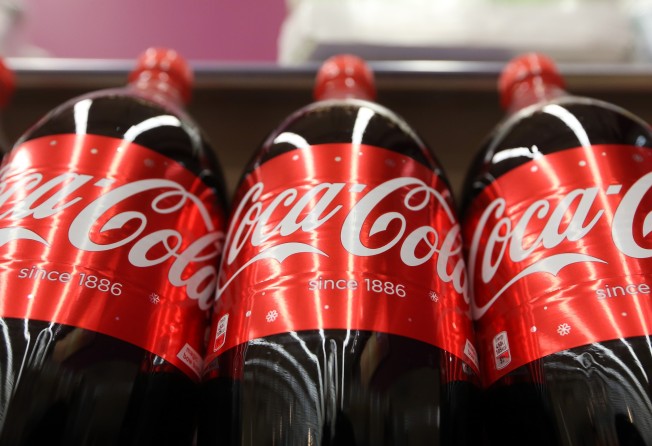Coca-Cola launches US$9 bottled water in China, but will it sell?

Coca-Cola has quietly launched its super-luxurious Swiss sparkling water – at twice the cost of a venti cappuccino from a well-known coffee chain – in China, but the question is will consumers from the world’s second largest economy fall for it.
Called Valser, the water appeared in the US soft drinks giant’s store on Chinese online marketplace Tmall two weeks ago, with an advertisement highlighting its source: “Switzerland.”
The price for its 750ml Classic bottle is 64 yuan (US$9.29), which will get you two Starbucks cappuccinos in Beijing’s Wangfujing shopping strip or three McDonald’s burger meals.
It even makes Tiger Woods’ favourite, Evian, look more affordable, because for that money you can buy six bottles of the French premium mineral water currently coveted among China’s burgeoning middle class.
“Our water comes from The Alps, which was formed 200 million years ago,” the world’s largest beverage company claimed on its advertisement, saying that its source was fed from melted snow and rain that filters through glacial sand.
The soft-drinks titan acquired Valser in 2002 for US$2.6 billion, though the Swiss water brand is little known outside its home, mostly available in upmarket retail outlets in cities such as Zurich and Geneva.
With consumer demand for sugary drinks sinking, Coca-Cola and its rival Pepsi have struggled to shore up sales of carbonated soft drinks by cutting the amount of sugar, while building up their bottled water businesses.
James Quincy, the company’s new chief executive, stressed in February that water and still drinks would be the focus of the Atlanta-based company.
“The underlying trend [of stills] is even better than what we jumped at in volume,” he said. “The strategy is to participate in the categories of highest value in revenue and profitability.”
In 2013, China overtook the United States to become the world’s biggest bottled water market by volume, growing from 19 billion litres annually to 37 billion litres from 2010 to 2015. Consultancy Zenith International predicts it will expand by a further 58 per cent by 2019.
China’s market has been long dominated by low- to mid-end domestic labels such as Nongfu Spring, Ting Hsin and Wahaha, which typically charge less than three yuan per bottle.
It is only in the past few years that Evian, Fiji and Perrier, two brands from France and one from Fiji, have gained a foothold in China, where the urban middle classes are in a race to upgrade everything they eat, drink and use.
Fiji, for instance, rose to national fame overnight after Wang Sicong, the scion of China’s richest man – Wang Jianlin – and one of the country’s most eligible bachelors, revealed in an online programme that he “would cook food with water exclusively shipped from Fiji”.
The price of a 500ml bottle of Fiji is about 10 yuan, still way below Valser.
Market observers reckon it remains unclear whether the Chinese will be willing to spend the 64 yuan it takes to sip from the snob appeal of a Swiss name.
In the two weeks to Wednesday, only two bottles of Valser Classic have been sold on Tmall.